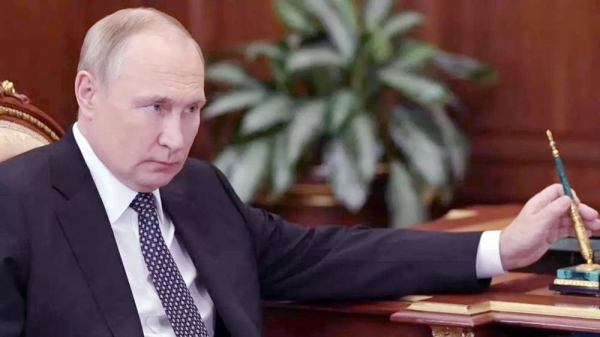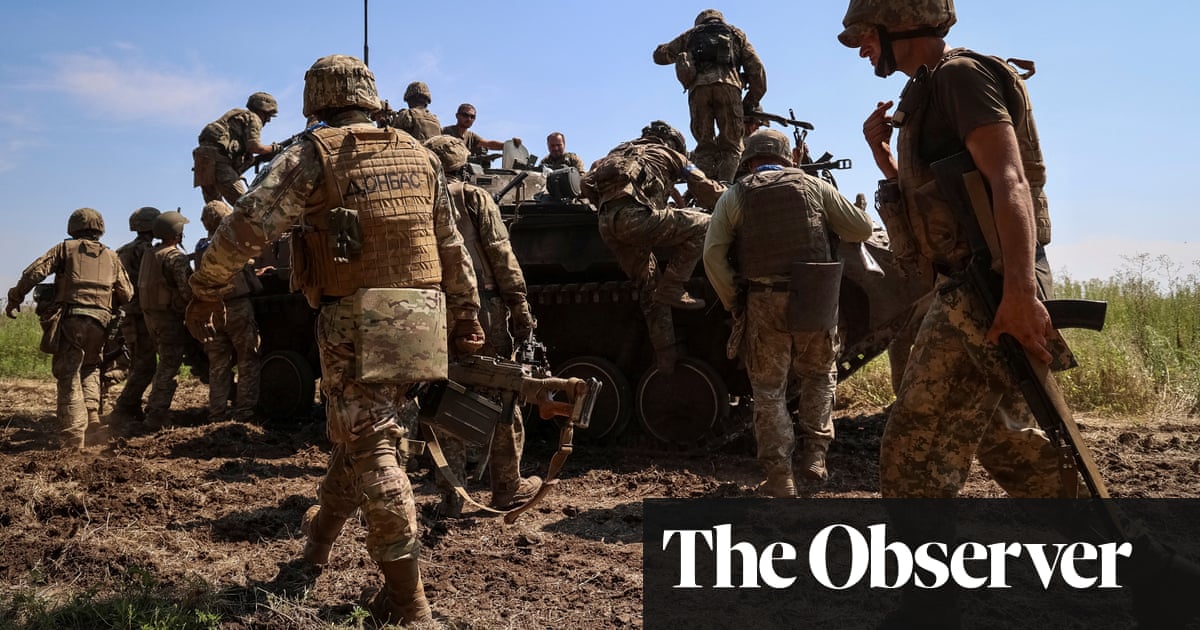
Vladimir Putin has accused the US of ignoring Russia’s security proposals in his first public comments on the growing crisis over Ukraine since December.
During a press conference at the Kremlin, Putin told journalists he was unsatisfied with the US response to Russian demands that Nato remove troops and infrastructure from eastern Europe and agree never to accept Ukraine into the alliance.
“It’s already clear … that Russia’s principal concerns were ignored,” Putin said after talks with the Hungarian prime minister, Viktor Orbán.
In emotional remarks, Putin also said the west was using Ukraine as a “tool to hinder Russia” and hypothesised that Ukraine’s entrance into Nato could lead to a conflict over Crimea, the peninsula annexed by Russia in 2014.
Putin said he was ready to continue negotiations with the west, which has said it is ready for dialogue but views Moscow’s demands as a non-starter.
But Russia has also continued deploying thousands of troops and offensive weapons to the Ukrainian border, appearing to threaten a strike if the Kremlin does not get its way.
Putin’s remarks broke almost a month of silence on the issue from the Russian leader, who has been mostly absent from public life as concern has grown in western capitals that Moscow was preparing an invasion.
His next move remains unpredictable. Joe Biden has said that he believes Putin has not decided whether or not to launch an attack but that he expects that he will “move in”.
The US secretary of state, Antony Blinken, spoke with the Russian foreign minister, Sergei Lavrov, in an effort to defuse the crisis earlier on Tuesday.
“If Putin doesn’t intend war or regime change, this is the time to pull back,” Blinken told Lavrov, according to a senior state department official.
“The sense here is still that we don’t know that Putin has made a decision about what he’s going to do. So until President Putin makes that decision, we need to continue to prepare for these different outcomes,” the official told reporters.
The state department spokesperson, Ned Price, said that the next step in the diplomatic exchange between Washington and Moscow would be a formal Russian response to a US “non-paper” setting out US positions on European security.
“When President Putin has had a chance to review it and approve it, it will be coming to the United States,” Price said. “We understand that once that takes place, the Russians too are willing to engage in continued dialogue.”
Price insisted the US “non-paper” did not ignore Russian concerns.
“It did address the points that have been raised by the Russian Federation. That doesn’t necessarily mean that the Russians will agree with the way in which they were addressed,” he said. He repeated the US and Nato position that the inviolability of borders and the sovereign right of Ukraine and other countries to decide on their own national security arrangements were “non-starters”.
On those issues, he added “there is no trade space”.
On Tuesday, Putin railed against deliveries of lethal aid to Ukraine, saying he believed that the country was being “packed full of weapons”.
Earlier, Poland announced it would provide shells, mortars and surface-to-air missiles that would boost Ukraine’s defence against low-flying attack aircraft. The US, Britain and other European countries have stepped up deliveries of anti-tank weapons, ammunition and other military aid to Ukraine to ward off a potential invasion.
The Russian leader imagined a situation where Ukraine joined Nato and then sought to retake Crimea, the peninsula annexed by Russia in 2014. “That’s sovereign Russian territory,” Putin said. “So now we have to start a war against the Nato alliance?”
“Did anyone think about this?” he asked hypothetically. “I don’t think so.”
He rejected US arguments that every country has the right to choose their own alliances, saying that one state must not be allowed to increase its security to the detriment of another state, namely Russia.
On Tuesday evening, Putin said that the US had not given “adequate consideration” of Russia’s “three key demands”, including a halt to Nato expansion, a refusal to place missile systems on Russia’s borders and remove Nato troops and infrastructure from central and east European countries that joined the alliance after 1997.
The Kremlin is putting together a response to a formal statement of the US position, which would have to be approved by Putin before being delivered to the state department, US officials said.
During a telephone call on Tuesday, Blinken told Lavrov that the US was ready for a “substantive exchange with Russia on mutual security concerns” but demanded an “immediate Russian de-escalation and the withdrawal of troops and equipment from Ukraine’s borders”. He also threatened “swift and severe consequences” if Russia launched a “further invasion of Ukraine”.
According to the Russian foreign ministry, Lavrov told Blinken that “instead of escalating aggressive rhetoric and pumping up the Ukrainian armed forces with various types of weapons, to use US influence on the Ukrainian authorities to force them to fully implement the Minsk agreements,” a 2015 peace agreement that appears close to collapse.
Behind the scenes, US officials said that the Russians appeared to be prepared to consider the US offer for negotiations on confidence-building measures such as limits on missile deployments and military exercises. “They did agree that the ideas on both sides that have been exchanged formed the basis for serious discussion,” one official said. “Why else would they continue to have this engagement?”
Bloomberg News reported on Tuesday that one of the US offers was to allow Russians to verify there are no offensive missiles such as Tomahawks at Nato missile defence bases in Poland and Romania. It is longstanding concern of Moscow that the missile defence system, intended as protection against Iranian missiles, could be used to launch a surprise attack on Russia.
And Putin said that he may hold talks in Moscow with the French president, Emmanuel Macron, in the coming weeks. “I hope that we will, eventually, find a solution, though not an easy one. We are aware of that. But for now I am not prepared, of course, to say that it will be [found],” he said.












